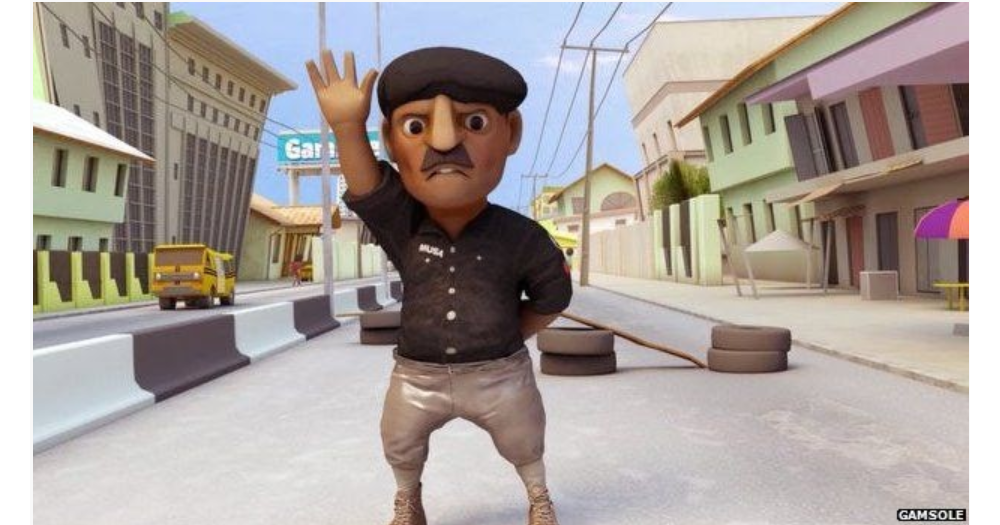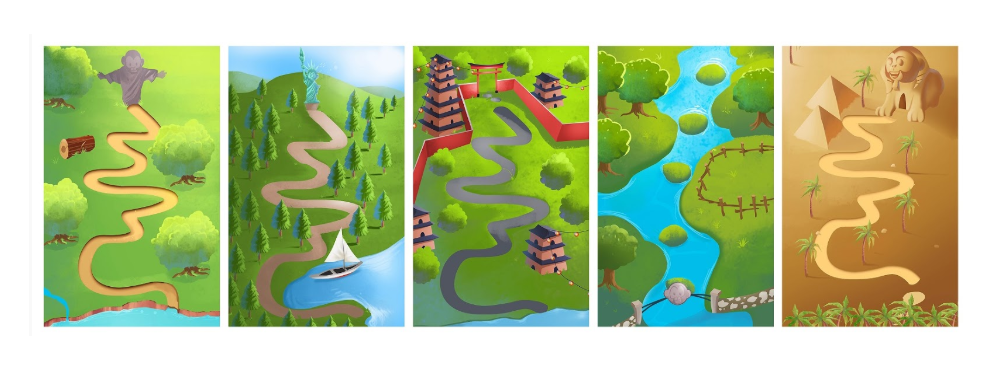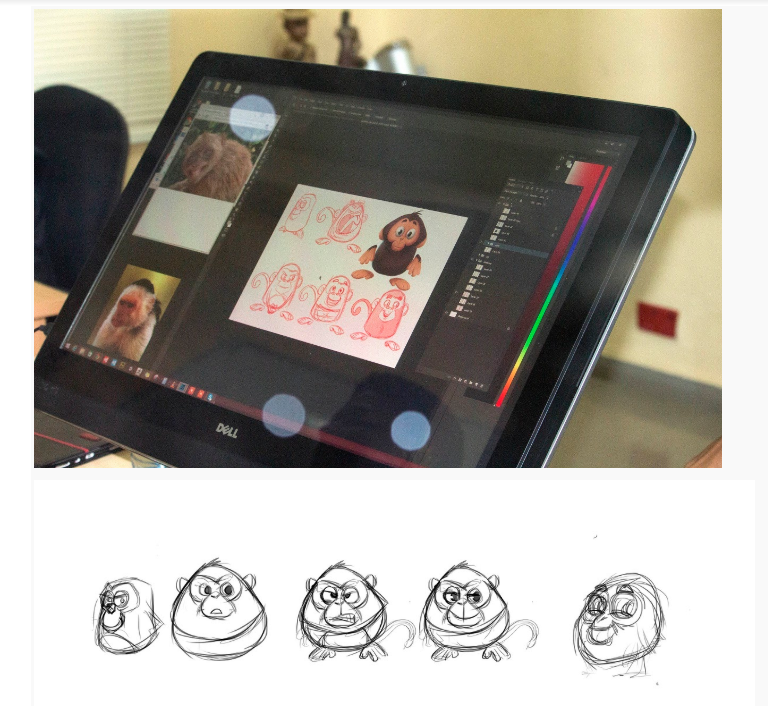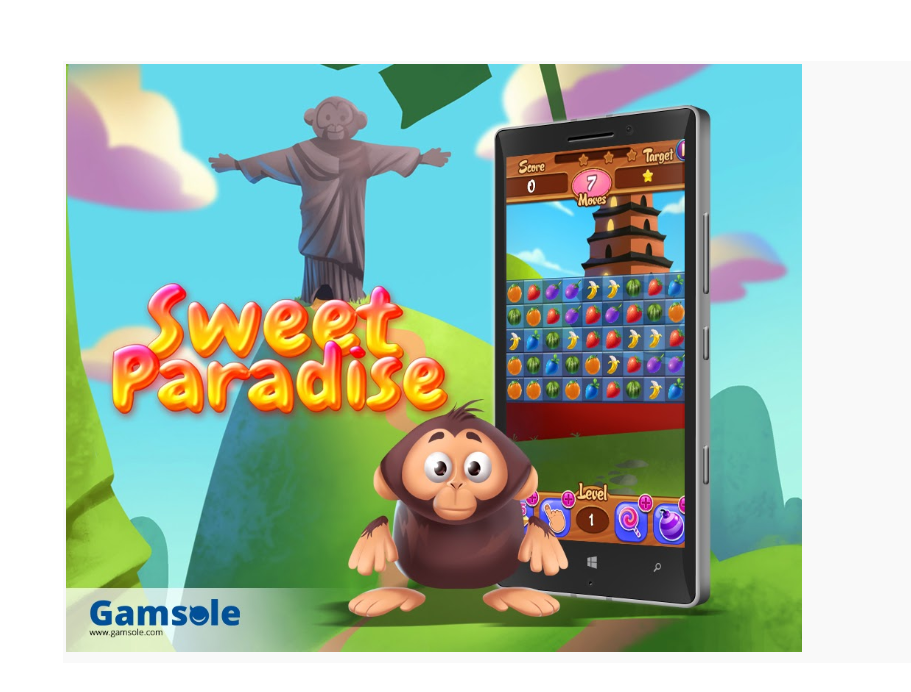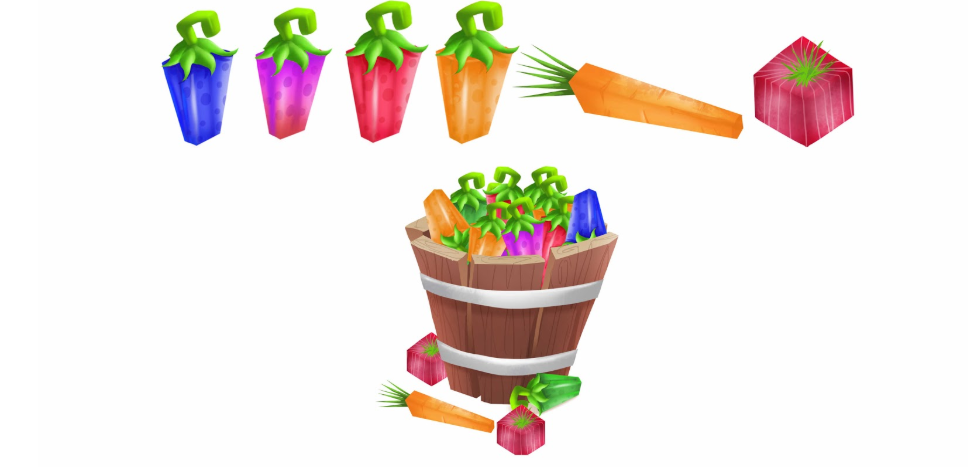How Gamsole Started - QnA with the CEO
Abiola Olaniran is Founder and CEO of Gamsole, a mobile gaming company based in Lagos, Nigeria. In this post, we would be sharing his story, and how he developed Gamsole.
How did you get into game development?
In school, I studied Computer Science and Mathematics at the Obafemi Awolowo University, Ile-Ife. While I was a student, I participated in a lot of competitions and during my quest for an area of concentration, I discovered that if I was going to go into application development, mobile gaming is the single category of applications that has the most requests from smartphone users. From utility to edutainment, business applications, social networking and all that, we have more people requesting for games than any of them. This makes it a lot easier for an individual developer with no initial resources to build something that can grow organically, without having to do a lot of marketing.
I was fortunate to have these thoughts and ideas at around the same time when the Windows Phone platform was being launched. It all started from winning Microsoft’s Imagine Cup and going on to represent Nigeria at the World Finals. It was at the World Finals Microsoft announced the release of the Windows Phone platform. There were guys showcasing applications at the event and that gave me more opportunity to learn the platform. I gained more focus as a programmer; from developing just about any kind of application, to focusing on mobile gaming.
From the Imagine Cup, I came back to Nigeria. I went into the Samsung Developer Challenge where I won the game and edutainment category. After all that, I became more sure that I was going to do this. So as an individual developer – I was still in school then – I kept on uploading applications to the store. One of my first games then was called “Road Blazer“. Within a few weeks, I already had about 40,000 downloads.
Apparently Gamsole as a company began after the 88mph programme.=What did you have to do achieve instant success?
I think a lot of our downloads came due to the fact that Gamsole was among the first set of developers on the Windows Phone platform. Imagine at the time, Microsoft was putting a lot of energy and money into pushing Windows Phone devices yet, thousands of new developers around the world were jumping on the iOS and Android bandwagon, because of the success stories they’d heard. For me, it was all about deviating a bit from the crowd mentality. It’s not about the most popular thought or idea among the developer community. It’s first about your users – what they are requesting for – and the niche, which is the opportunity you’ve found.
As you’ve explained, you got on the Windows Phone platform primarily due to the perfect timing. However, 3 years down the line, why does Gamsole still develop for only Windows Phone?
We are actually currently developing for feature phones, but with strategic partnerships. Our first Android game is also in the works. So we are definitely going cross-platform. However we are taking our time to study the market extensively. We don’t want to upload an application unto the store and have 10,000 to 100,000 downloads, which we consider a failure. If you really want to make money with applications, you definitely need a lot of downloads and requests.
Speaking of downloads and requests, what is the Gamsole business model? How do you make money?
For now, Gamesole monetizes mainly through advertisements on the Windows Phone platform. We are able to do that because we get a lot of requests and have a lot of games. The model we’ve been working with is inspired by the likes of Miniclip and the earlier days Gameloft, where they would create a lot of games. So it makes sense for us to have a lot of mini-games and monetize them with advertisements.
However for the Android and iOS games we are currently working on, they will be monetize solely by in-app purchases. That’s just the model that makes sense for these platforms. Of course for Windows Phone we can as well do in-app purchases. We are definitely working on that.
Let’s go a little bit back to your stint at 88mph. Following the completion of the programme, Gamsole was based in Nairobi for a while. Why did you decide to come back to Nigeria?
I can say the environment is quite similar. However, for you to build a great company, you need a great team. I just figured then that I had a better chance of getting more skilful people here than I was getting in Nairobi. I can practically say that in this whole country, we have the best set of animators and graphic designers. And that’s because we value team and skill. It’s not about the number of people, it’s about how good they are. I would rather hire one person that can do the job of 5 people, and do it very well, than hire 5 people that will struggle to do the job of one person. So get one person, pay that person shitloads of money to motivate them enough to be able to that job.
Also, like you said, the 88mph accelerator programme had ended at that time. Nairobi definitely has its own advantage for startups. It’s generally more conducive for startups – housing is not much of an issue, you have constant electricity, many hubs coming up here and there. But I think Nigerians are more aggressive. If you are going to win in Africa, I think you should be in Nigeria. Lagos is specifically. Life is way faster here; this is where you really want to be if you’re trying to build something that will be the biggest in Africa. Of course, I’m fortunate to be from Nigeria so what am I not doing here?
As far as gaming goes, at least locally, you are now a “big boy”. Do you still code?
Of course, coding is my passion. I think everything is going to become boring to me once I stop coding.
For me, it’s all about the product. Like they say, a great CEO can either be someone who is extremely good with the product, someone who is very good with keeping the money, or someone who is really good with marketing. If you look at it globally, any great CEO must have at least one of these 3 attributes that he’s very good at. I think my strength and passion lies on the product side. In my opinion a great CEO of any tech company has to know a lot about what the company is actually selling. From the likes of Bill Gates, Steve Jobs and Mark Zuckerberg, those guys are sitting at the heart of the product, not just putting someone there.
What are some of the challenges to running a gaming company in Nigeria?
You have to really fight hard to create the kind of team you want. It’s a serious battle. It’s even more difficult when you’re in a foreign land that’s similar to your home country, in terms of the kind of problems you are facing. But we’ve been able to crack that to some extent. We obviously still need to do a lot but, with the kind of product we are creating, we hope we will generate more interest in really good people coming to join our team.
What is the state and future of gaming in Nigeria? With the local content on ground, would you say there’s the potential of building something like say Candy Crush?
People have to understand that if someone is going to play your game, they don’t really care about African stories, to be honest. You’re going to have to play on the same plain with Candy Crush, Subway Surfers and the like. And truth be told, the fact that you’re including black people in your game won’t necessarily make people download yours over theirs. You need to have that kind of marketing budget that makes sense. You need to know, on the average, how much you’re expecting to get per user. Those are the key things. I notice a lot of Nigerian developers focus on creating games that tell the “African story”.
If concentrate on that, you will definitely flop. Don’t get me wrong; having African feel and appeal is not a disadvantage. I’m just saying it shouldn’t be the stronghold of your gaming project. Pitching “African games” as your primary differentiator doesn’t really help because what people really care about is, “is the game fun”? You can’t just develop games for Nigerians alone. That won’t fly, trust me. You have to design something with a global mindset, something that will appeal to everybody. If I’m going to acquire users for my game, I wouldn’t acquire Nigerians. I would rather acquire people outside Nigeria. The kind of metrics I would be looking into are the buying power; how much they’ve spent on applications before.
So for me, developing games for Nigerians is not yet viable. Of course you can always use what is in your environment to create something fun for the rest of the world.
Expect the best game that has ever come out of Africa. Expect to get to see our idea of creating African games coming into reality. Creating “African” games is not about focusing on the evil things happening in Africa. No, it’s more a combination of humour, lifestyle of the people, the literature and creating entertainment out of it such that anybody, including non-Africans, can relate to it and enjoy it. That is what we hope to achieve with Gidi Run – make people see what is happening in the society. We put a bit of humour and, of course, good graphics. We also try as much as possible to make the coding very fluid, up to global standards.
For everything else, as long as your company is making enough money to sustain the business, you won’t have too many issues.
